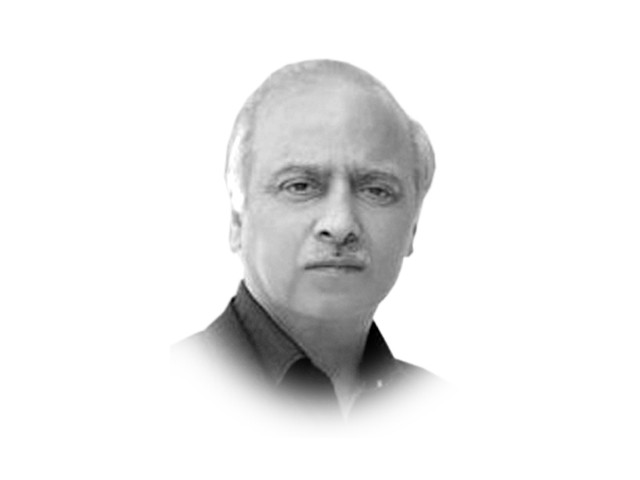Ignoring constitutional obligations
President may hold brief on cultures as an individual, but forgot he represents a multicultural, multiethnic society

The writer heads the independent Centre for Research and Security Studies, Islamabad and is author of Pakistan: Pivot of Hizbut Tahrir’s Global Caliphate
It was subjective because what is wrong with celebrating an occasion, regardless of whether it is Western or Eastern? It was paradoxical because the majority of affluent Pakistanis live largely in the Western tradition. Deception, fraud, maltreatment of servants and snobbery are all but a few hallmarks of our “Eastern” culture. Honestly, I learnt my manners of greeting people, showing deference to those walking ahead of you or behind you, considering others’ rights, all after arriving in Germany as a 24-year-old. Nearly every day was a bitter reminder of the bigotry and insensitivity that I had grown up with in a Muslim society.
The president’s revealing statement on Valentine’s Day also runs contrary to the spirit of respect for diversity, tolerance and deference to other beliefs and traditions. He may hold his brief on other cultures as an individual, but he forgot that he represents a multicultural, multiethnic society that is also guided by the Constitution of Pakistan. The president and those who think like him need to be reminded that even if they abhor Western culture, they are supposed to follow the Constitution in its letter and spirit to ensure and protect equal rights to all citizens. They also need to be reminded, for instance, that Article 20 guarantees “freedom to profess religion … the right to establish, maintain and manage its religious institutions”. Article 22 provides safeguards as to educational institutions in respect of religion and says “no person attending any educational institution shall be required to receive religious instruction, or take part in any religious ceremony, or attend religious worship, if such instruction, ceremony or worship relates to a religion other than his own”.
Do they know that in most public schools in many parts of Pakistan, non-Muslim students are compelled to study and memorise Islamic texts and instructions — a practice that is in sheer violation of Article 22? Non-Muslim students, particularly in Khyber-Pakhtunkhwa (K-P), are required to rote learn verses of the Holy Quran, which carry 40 per cent marks in exams. In most public schools, particularly in K-P and Balochistan, either textbooks for Ethics (a substitute subject for Islamiyat) are not available or the teachers for this subject have not been appointed. In K-P, books for Ethics have not been developed and printed for the last 10 years although the curriculum was formally approved in 2006. Textbooks of the Punjab Textbook Board (PTB) have been provided this year in the province as demanded by minorities.
Ironically, the president issued this statement on a day when the entire nation was proudly celebrating Dr Nergis Mavalvala for her contribution towards the historic detection of gravitational waves. We thought we had found one more example to convince the world that Pakistan was a liberal, democratic society where women had an equal right to education. But the president literally dampened the euphoria, raising questions about the mindset that rules this country. Dr Mavalvala’s Zoroastrian roots in Pakistan also remind us that regardless of a person’s religious affiliation, Pakistani citizens can be as brilliant as citizens elsewhere. The country’s minorities may be a fraction of the Pakistani population but the shabby and discriminatory treatment meted out to them sullies our image more than anything else. It is, therefore, extremely necessary for our leaders to set an example of respect for all citizens, their cultures and traditions, and to think of their constitutional obligations before they speak.
Published in The Express Tribune, February 18th, 2016.
Like Opinion & Editorial on Facebook, follow @ETOpEd on Twitter to receive all updates on all our daily pieces.












COMMENTS
Comments are moderated and generally will be posted if they are on-topic and not abusive.
For more information, please see our Comments FAQ